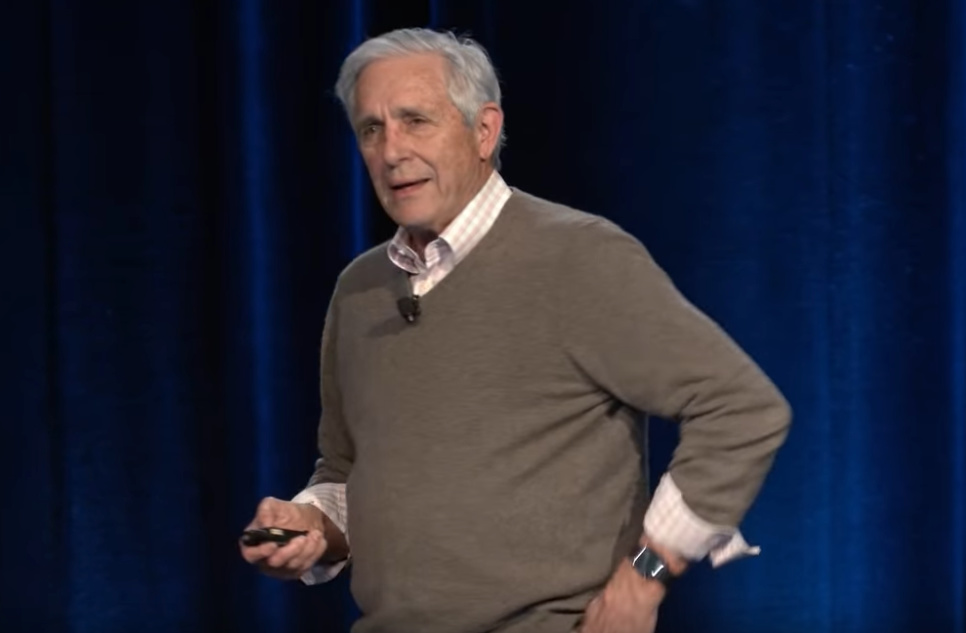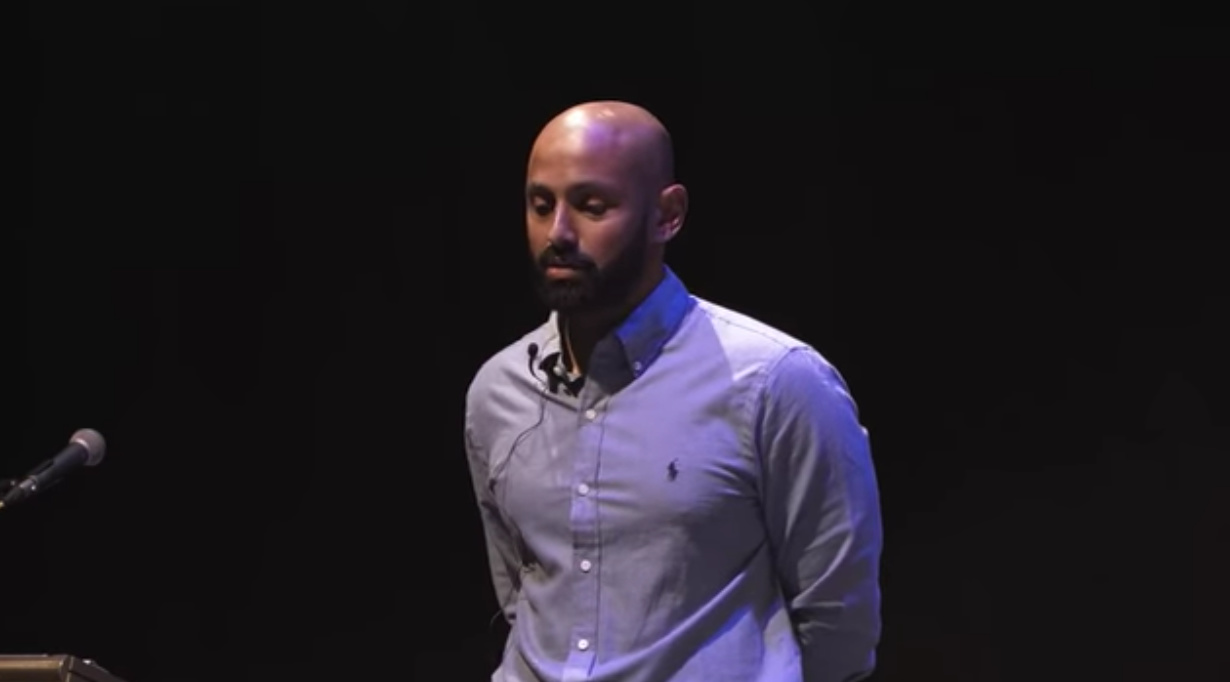What do you think? Seems like some strange claims made in this article.
Neanderthals carb loaded, helping grow their big brains
Well, according to the article, we grew our brains between 2,000,000 and 700,000 years ago, but starch-eating is dated to 600,000 years ago at the earliest. That statement would appear to contradict the title. I would think that radioisotope analysis of Neanderthal bones should tell the correct story. Isotopes vary distinctly according as the person ate primarily meat or primarily plants.
One thing that confuses me about Homo neanderthalensis is that they are alternatively described as a competing species driven to extinction by H. sapiens (us), or as a human sub-species, H. sapiens neanderthalensis (the modern human species thus becoming H.sapiens sapiens.)
If they were a separate species, then their diet is irrelevant to the diet of H. sapiens.
If, as some people claim, however, the DNA of some modern H. sapiens contains genes from H. neanderthalensis that means we were two sub-species that merged. But even in that case, I’m still not sure of the relevancy, given that the highest percentage of Neanderthal DNA I’ve heard of being found in a human being living today is no more that 11 or 12%. I may be wrong, but it sounds as though someone is hypothesising in advance of sketchy data.
In any case, Mike Eades has a fascinating lecture, available in many variations on YouTube, on the health differences between hunter-gatherer societies and agricultural societies. The comparison does not favour the plant-eaters.
As a side note, I did some checking, because of an article on dog-wolf hybrids, and learned, to my surprise, that dogs and wolves are the same species. Wolves are now considered Canis familiaris, and dogs are C. familiaris domesticus. Surprised the heck out of me, but the key is that a dog-wolf cross produces fertile offspring. Therefore, if it is true that there are people living today who have Neanderthal DNA, we and they must be the same species.
By contrast the offspring of a donkey and a horse is always sterile, which is why “mule” has become a synonym for a person who is infertile. (Technically a mule is the offspring of a male donkey and a mare, whereas the offspring of a female donkey and a stallion is called a “hinny.”)
This is as far as I got:
The brains of our ancestors doubled in size between 2 million and 700,000 years ago. Researchers have long credited better stone tools and cooperative hunting: As early humans got better at killing animals and processing meat, they ate a higher quality diet, which gave them more energy more rapidly to fuel the growth of their hungrier brains.
Still, researchers have puzzled over how meat did the job. “For human ancestors to efficiently grow a bigger brain, they needed energy dense foods containing glucose”—a type of sugar—says molecular archaeologist Christina Warinner of Harvard and the Max Planck Institute for the Science of Human History. “Meat is not a good source of glucose.”
Nonsense. Fat did the job and did it an order of magnitude more efficiently than glucose could possible have done it. This is a conclusion desperately seeking evidence. We’ve been here before.
The bias is evident in the first line of the piece…
" brutish meat eaters"
No point in reading any more…
This has a great overview of mules and what the differences are between them and say horses, and why they are so good for pulling things:
Not always! I remembered my alma mater Texas A&M had a fertile mule decades ago so I looked it up. Very rare - only 60 documented cases, but not impossible.
Human genetic manipulation at its best.
When I see a dog I apologise to the poor proud wolf for what we did to them.
Not going to read it 
Our cousins had bigger brains and more muscles, they needed more energy dense food than what a plant can provide.
Hyper carnivores is the only thing that would make sense.
I’m not sure if I would like to meet one.
They may have had the enzymes nessesary to break down starch? Humans and dogs can do that to.
It does 
I think its interesting that n15 is relatively lower in neanderthals than in our spieces.
The data shows that we ate more carnivores (fish) and they ate more big game.
A scientist friend recently commented that human genetic adaptation to diet can occur over a relatively short evolutionary time span (i.e., thousands of years or even hundreds), and that the diets of neanderthals might not be so relevant to the ideal diet for populations today. Just curious what you all think. In my opinion, the frequent reference by the paleo/carnivore/keto community to what “humans” ate hundreds of thousands of years ago is not a strong argument for what we should be eating today.
I found one article with examples of genetic adaptation that could be relevant:
@Wendy198 Here’s the ‘strong argument’:

I’m fine with arguments that use dietary data from 10,000 years ago but not dietary data from neanderthal times, which seems not very informative to modern human dietary needs.
I also think understanding more recent population genetic variation in metabolism is key to understanding why individuals respond so differently to dietary experimentation.
Watch Yoganathan’s presentation. The human gut evolved over a very long time span to extract energy and nutrients from nutrient dense sources such as fat and meat. Can we extract nutrients from dilute plant sources - sure, some. But it makes a lot more sense to let the herbivores do all the digestive grunt work and eat them instead.
Our ancestors weren’t stupid. There’s a herd of mastodons grazing over yonder and no one’s going to waste time and energy digging up some semi-digestible plant roots instead.
I think you both might be correct. Michael might be correct in that there’s a “baseline” diet that is more appropriate for everyone. If, however, you introduce carbs into the equation, there does seem to be variability in reaction by different people. Thus, Wendy198 might be correct.
And I see this just in general, all the time. I see super thin people who have no issues maintaining their thinness, even while eating carbs. Many of us are not like that.
It’s pretty easy to do a search and get studies like this:
In my mind, there HAS to be a genetic component to all of this.
I should note that this may influence the vast numbers of diets. For example, Ted Naiman can eat a high protein, lower fat (and higher carb) diet because of his genetics. He’s a muscular male who never was obese, even while vegetarian. Genetics had to play a role.
Others, like Amber O’Hearn, need a higher-fat (and plant-"free: - I think she drinks coffee) diet for both mental and physical health. Genetics had to play a role.
I’m constantly seeing a war (on Twitter) between LCHF and LCLF and high P:E (which can include higher carbs). This has to involve genetics, including whether you can gain and have muscle.
I’d like to put in a good word about Neanderthals. They interbred with sapiens. Every sapiens alive today has Neanderthal DNA. So their evolution remains relevant. Since they were here a few 100k years prior to sapiens they were our ancestors as much as erectus.
This podcast with evolutionary biologist, Michael Rose, at one point discusses human adaptation to the introduction of new types of foods.
It seems that when we are young our bodies can handle foods that are not necessarily evolutionarily appropriate, but as we age, we need to revert back to our ancestral diet.
He mentions that the type of foods introduced into our diet within the last 100 years isn’t tolerable for even the young as demonstrated by how many children are overweight and developing metabolic disorders just like adults.
Thinness is not necessarily the best criterion. As Dr. Lustig points out there are actually more metabolically-ill people who are thin than there are who are fat. Plus a surprising percentage of the obese are perfectly healthy in every other way. It would appear that carrying some extra fat, in and of itself, is not necessarily an indicator of poor health.
All you have to do is look around you at Walmart and you have all you need to know about carb loading…

